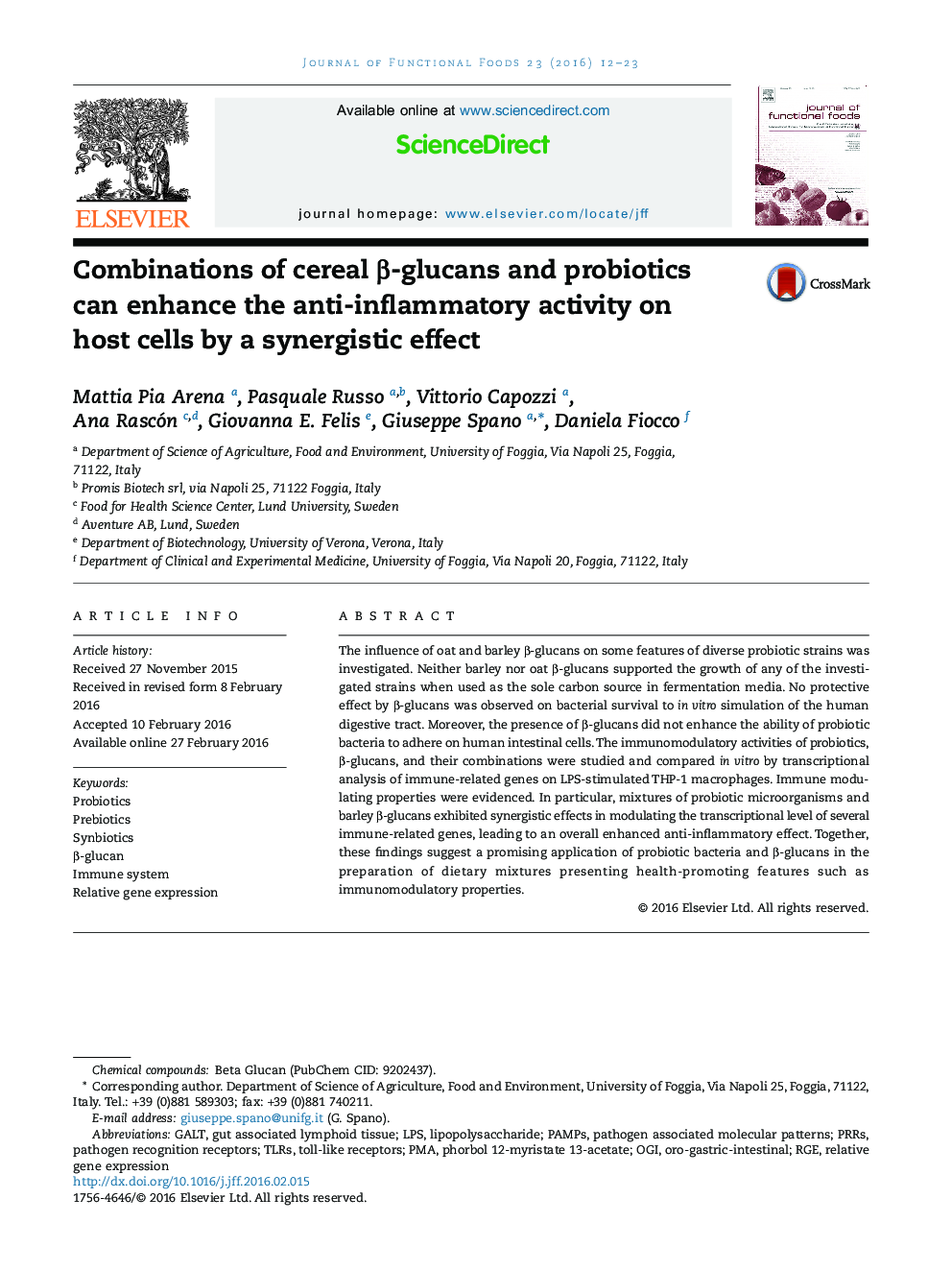| کد مقاله | کد نشریه | سال انتشار | مقاله انگلیسی | نسخه تمام متن |
|---|---|---|---|---|
| 1219485 | 1494543 | 2016 | 12 صفحه PDF | دانلود رایگان |

• Mixtures of β-glucans and probiotics modulated the transcriptional level of several immune-related genes.
• Mixtures of bacteria and barley β-glucans enhanced the anti-inflammatory properties of probiotics.
• The immune and anti-inflammatory effect of microorganisms could be potentiated by combination with β-glucans.
The influence of oat and barley β-glucans on some features of diverse probiotic strains was investigated. Neither barley nor oat β-glucans supported the growth of any of the investigated strains when used as the sole carbon source in fermentation media. No protective effect by β-glucans was observed on bacterial survival to in vitro simulation of the human digestive tract. Moreover, the presence of β-glucans did not enhance the ability of probiotic bacteria to adhere on human intestinal cells. The immunomodulatory activities of probiotics, β-glucans, and their combinations were studied and compared in vitro by transcriptional analysis of immune-related genes on LPS-stimulated THP-1 macrophages. Immune modulating properties were evidenced. In particular, mixtures of probiotic microorganisms and barley β-glucans exhibited synergistic effects in modulating the transcriptional level of several immune-related genes, leading to an overall enhanced anti-inflammatory effect. Together, these findings suggest a promising application of probiotic bacteria and β-glucans in the preparation of dietary mixtures presenting health-promoting features such as immunomodulatory properties.
Journal: Journal of Functional Foods - Volume 23, May 2016, Pages 12–23